In this article
View 3 More +You love your feline friends, but you’re aware they won’t be around for your entire life. However, some cats live longer than others, so certain breeds will be in your life for far longer than other breeds. Knowing how long a cat will live can be an important factor in deciding what kind of kitty to adopt.
If you’ve been thinking about adopting a Russian Blue, you’ll be happy to hear that this feline breed has quite a lifespan. Most Russian Blues will live 15 to 20 years! Of course, many factors can affect how long a cat lives, such as genetics, health, and more. Here’s a closer look at what could affect the lifespan of a Russian Blue.
Russian Blue Average Lifespan
As previously stated, Russian Blue cats live, on average, between 15 and 20 years. Many feline breeds have similar lifespans, but whether your kitty will live that long or not depends on several factors. However, you can help ensure that your cat is around for as long as possible by giving them the proper care needed.

How to Care for Your Russian Blue for a Long Lifespan
How do you care for a Russian Blue to ensure they have as long a lifespan as possible? Here’s how!
Feeding & Diet
Felines are obligate carnivores, meaning they require meat in their diets to stay healthy. So, ensure you’re feeding your Russian Blue high-quality cat food containing meat as the first ingredient. Cat food should also have all the nutrients, vitamins, and minerals your pet needs for good health. When it comes to how much your cat should be eating each day, check with a vet, as the suggested serving size on the food bag isn’t always ideal for every cat. Aim to maintain a healthy body condition score, as obesity makes your cat prone to health issues like urinary tract disease, joint problems, and diabetes.
Need veterinary advice but can't get to the clinic? Catster recommends PangoVet, our online veterinary service. Talk to a vet online and get the answers and advice you need for your cat without having to leave your living room — all at an affordable price!

Environment
It might not seem like the environment around your pet would have much of an effect on them (at least, not as long as the environment is clean and safe), but it can. Unfortunately, cats that live outdoors have a shorter than average lifespan because they are exposed to infectious diseases, toxins, predators, and traffic, all of which can lead to an untimely death.
Providing for all their needs will help to keep cats happy and healthy. Russian Blues are incredibly loving felines who adore their families. So, these felines need human companionship, especially from their chosen person. That doesn’t mean they’ll love everyone in a household, though; this breed prefers older children to younger ones, so if you have little ones, it could make the cat anxious or irritable.
Cats also need plenty of physical and mental stimulation, including toys, cat trees, and scratching posts. Plus, felines will need a litter box that is clean and emptied often. Without these things, a Russian Blue could develop behavioral and stress-related issues, which could affect how long they end up living.
Care
When it comes to caring properly for a Russian Blue to ensure they have a long, healthy life, you’ll need to give them a diet of nutritious, high-quality food, clean out their litter box, and do some occasional grooming. These kitties have short coats and don’t shed much, so you only need to brush them once a week or so. Their nails should also be trimmed regularly.
Other than that, make sure your pet is up-to-date on vaccinations and invest in good parasite prevention.
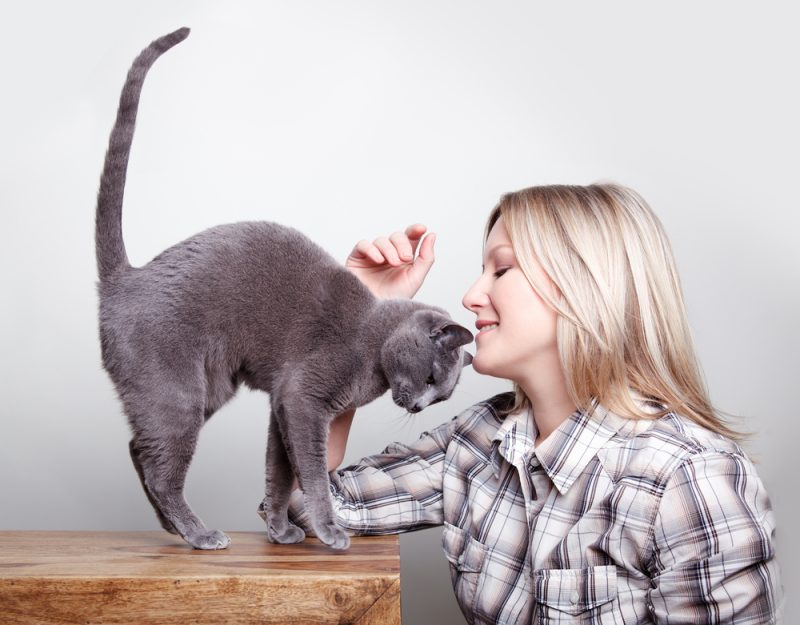
Breeding
Genetics are also a key factor in how long a cat will live. If you get your Russian Blue from a shelter or rescue, you probably won’t know anything about their family history. However, if you adopt from a reputable breeder, you can (and should) ask questions about the cat’s family history and what kind of genetic testing has been done. This can help you determine whether health issues may show up later down the line.
Healthcare
Russian Blues are generally healthy cats (which is part of why they live for a long time). However, every cat breed has a few health issues they’re prone to getting, and the Russian Blue is no exception. When it comes to these felines, some of the more common health problems that arise are obesity, bladder stones, polycystic kidney disease, urinary tract infections, and progressive retinal atrophy.
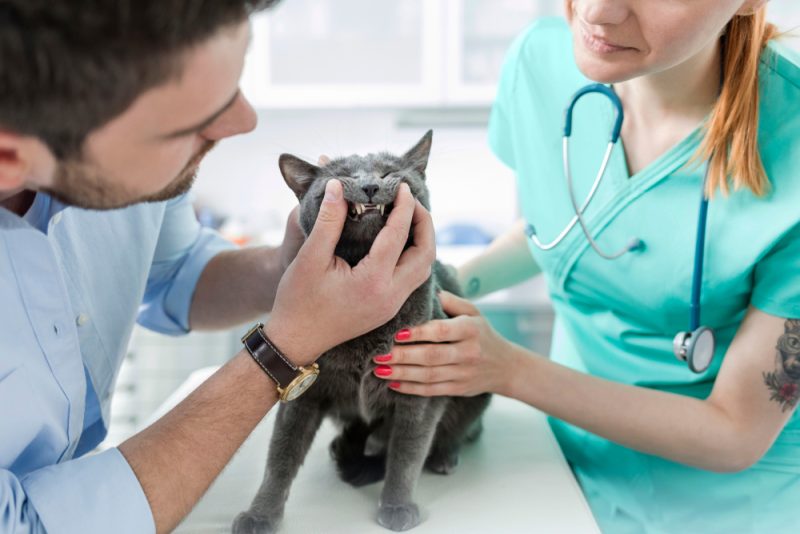
The Life Stages of a Russian Blue Cat
Like all felines, the Russian Blue has four life stages.
Kitten: 0–12 months
This stage is one of the most crucial ones for your Russian Blue as this is the period when your cat will learn how to socialize with other animals and people and learn what is appropriate play and what isn’t. You can help keep your cat healthy during this life stage by getting them all their needed checkups, vaccines, and starting them on parasite control.
Young Adult: 1–6 years
The age of one is when your Russian Blue officially becomes an adult! Once kitty hits adulthood, you should switch them from their kitten food to an adult food, as adult cats and kittens need different amounts of nutrients to stay healthy. You should also make sure to take your cat to all routine vet check-ups during this period and ensure they are getting enough exercise daily.

Mature Adult: 7–10 years
There isn’t a lot of difference between the young adult stage and the mature adult stage. However, by this age, your Russian Blue might have developed a health problem or two. So, be sure to continue taking your pet in for routine check-ups so they stay as healthy as possible.
Senior: 10+ years
Your Russian Blue won’t necessarily slow down during their senior years. Healthy kitties are more than capable of staying active throughout this time. That said, you should keep a closer eye on your pet’s health as they age to catch any health issues as soon as possible.
How to Tell Your Russian Blue’s Age
If you don’t know how old your Russian Blue is, the best way to tell is a microchip or paperwork if this is available. If your Russian Blue is clearly a kitten, their teeth can give you a rough idea of their age as their baby and adult teeth will start to appear at various times. They will have a full set of adult teeth around 7 months of age.
If your cat is an adult, it can be very subjective and misleading to estimate their age. While clues like the presence of dental disease, arthritis, and cloudy eyes could lead you to think your cat is an older adult, the cat’s genetics and environment could affect these traits more than age.
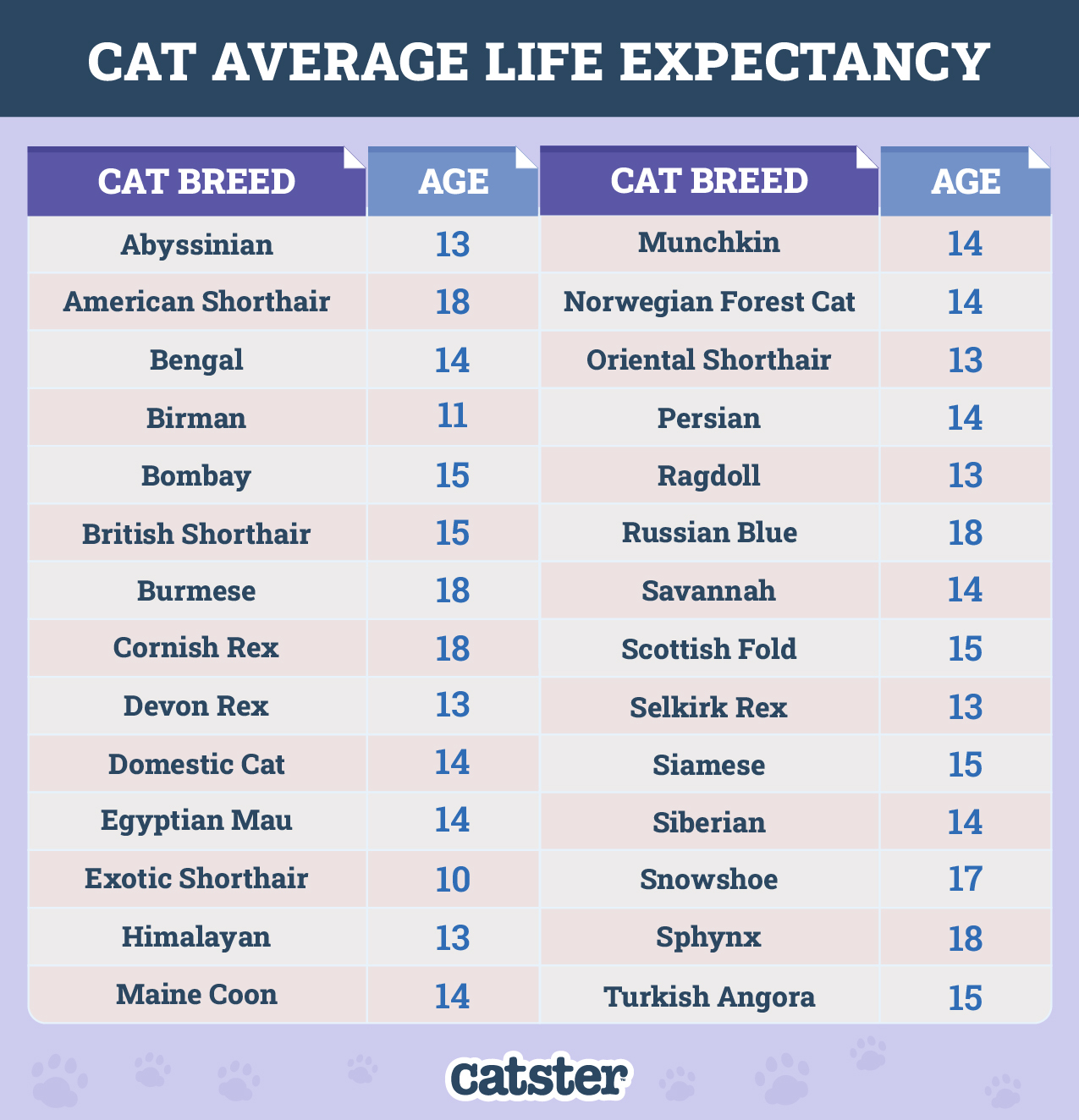

Conclusion
Russian Blue cats live between 15 and 20 years, but the length of their lifespan can depend greatly on you. To ensure your pet has the longest life possible, you should be sure you’re caring for them properly. This includes taking them to the vet regularly, feeding them a healthy diet, and ensuring all their needs are met.
Featured Image Credit: Review News, Shutterstock

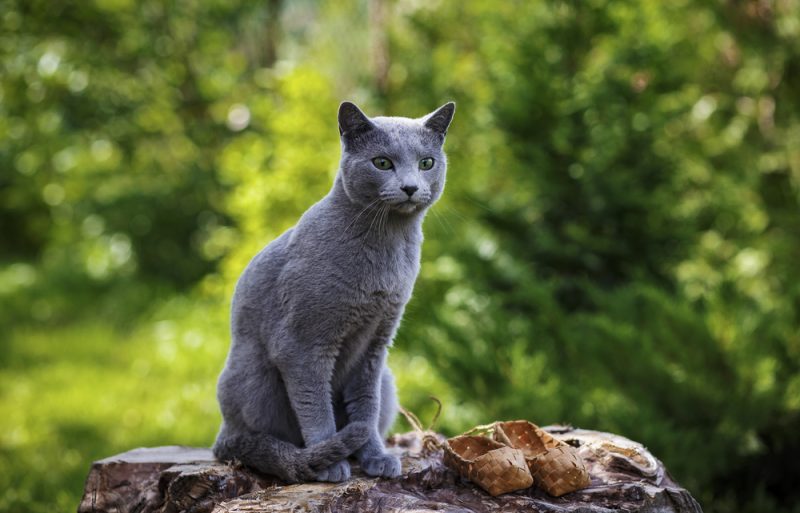


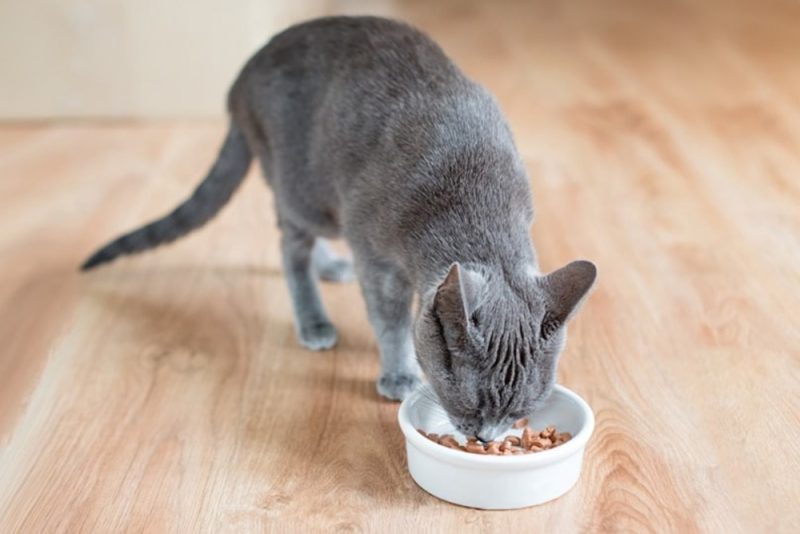




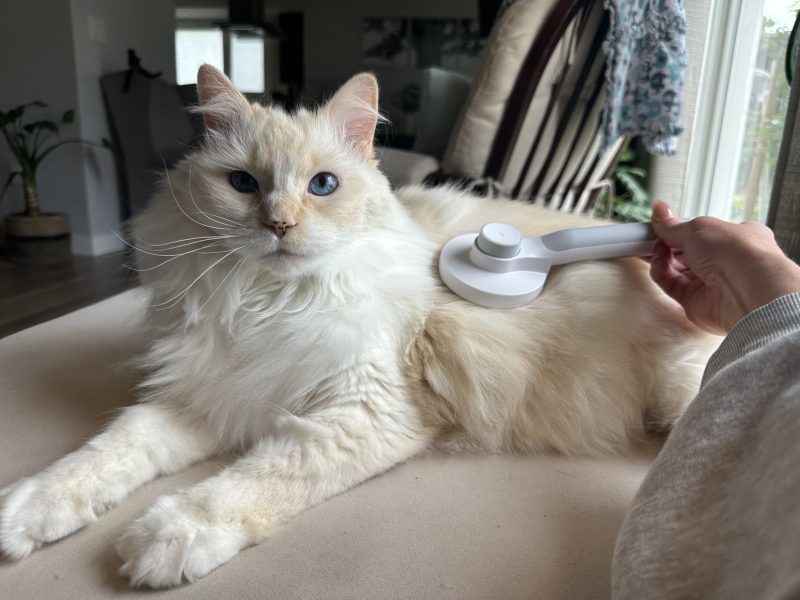
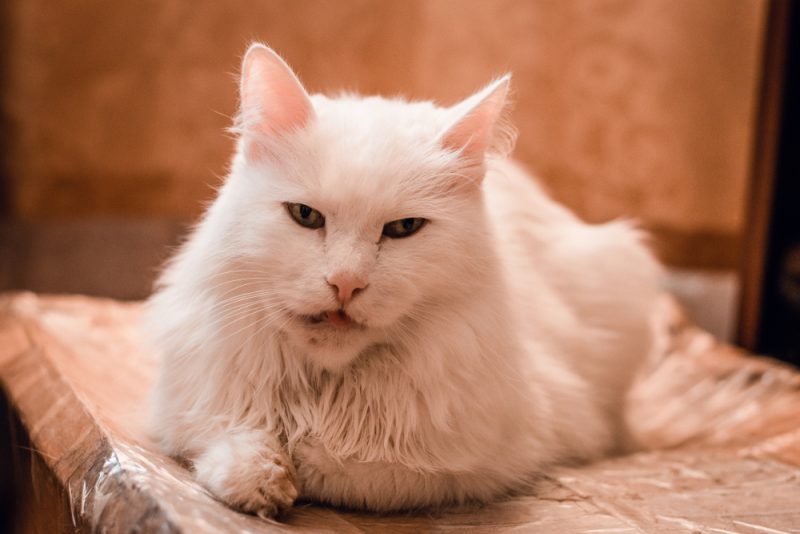
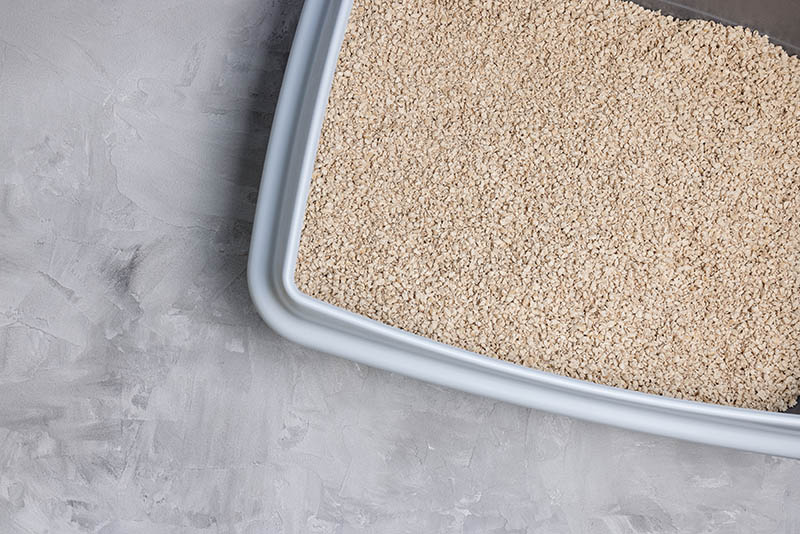

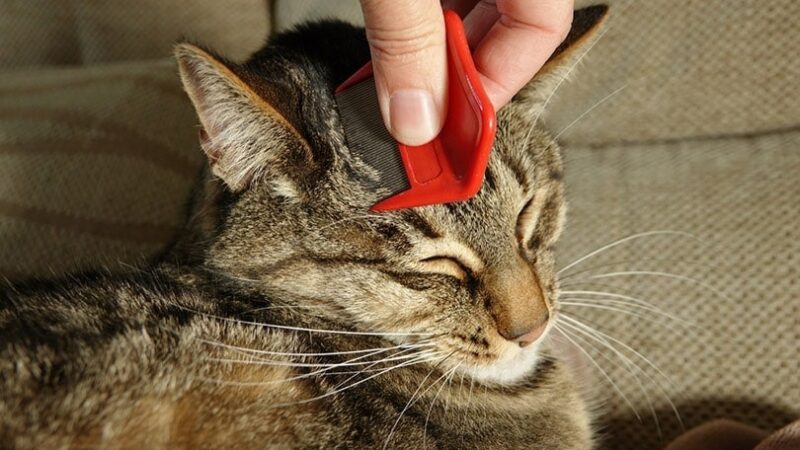
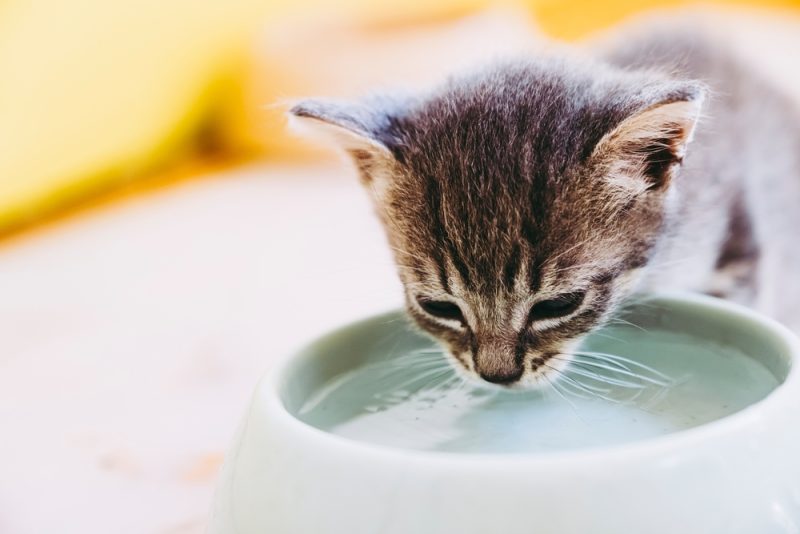

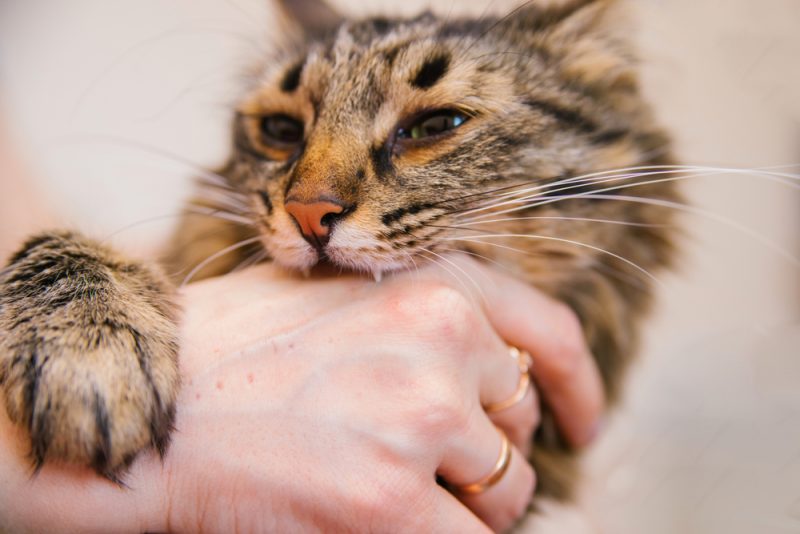

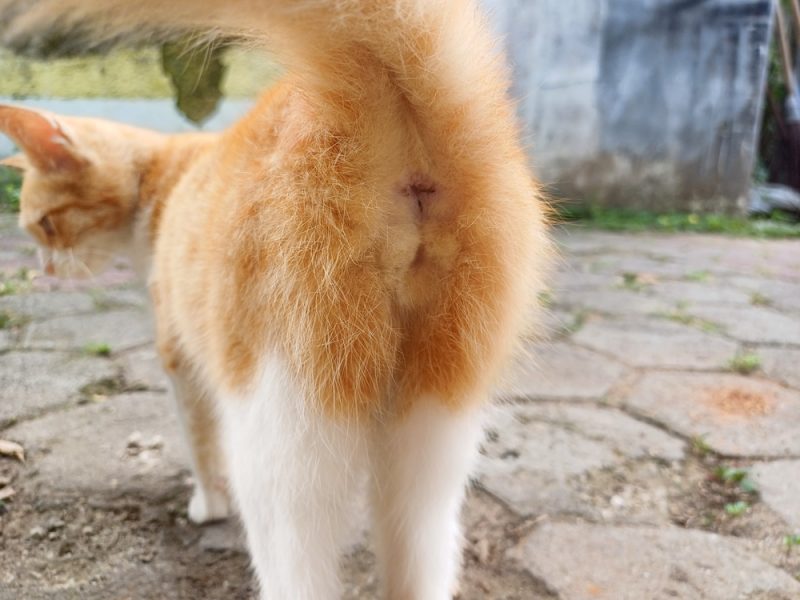
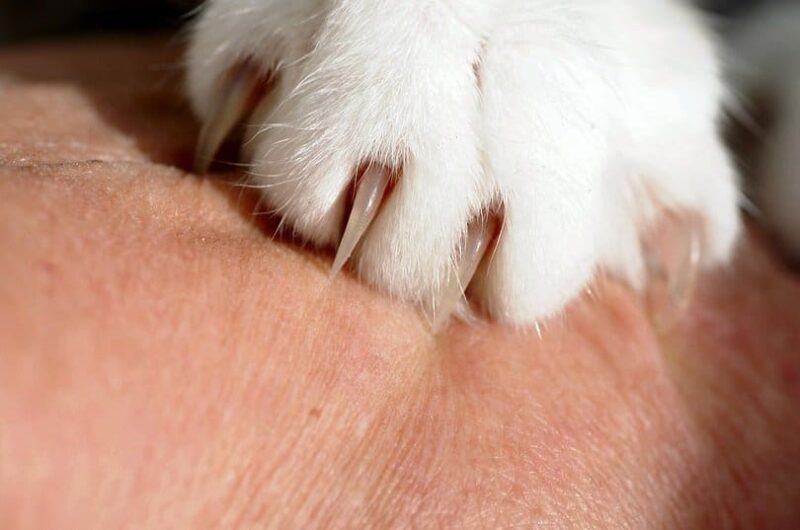

2 Responses
i have a russian blu cat named Jerseyboy he is 13 years old hes very skinny and bonie he always thrrows up liquid from his food need some advice on how to help him hes not gaining no weight
Hi Karen. I am sorry to hear that Jerseyboy, your 13-year-old Russian Blue, is struggling with weight loss and frequent vomiting. Dealing with a senior cat who is unwell can be very worrying.
It is crucial that you schedule an appointment with your veterinarian as soon as possible. In the meantime, if you wish to have a chat with one of our vets so they can help you narrow down possible causes, you can find them at www.pangovet.com.